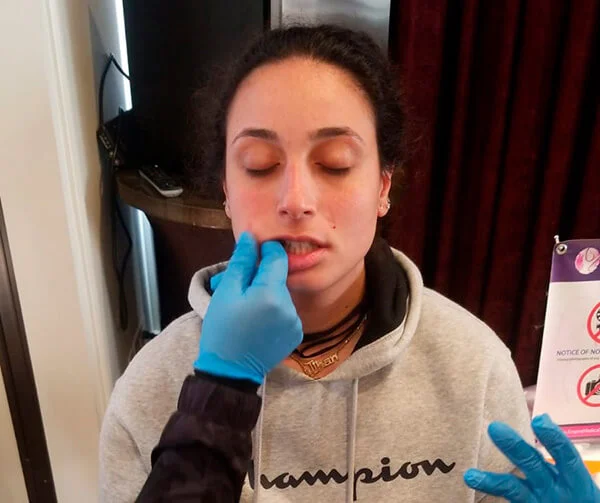Can a Dentist Give Botox®?
By Dr. Stephen Cosentino
PRESIDENT OF EMPIRE MEDICAL TRAINING
Led by Botox, botulinum toxin type A treatments are more popular than ever. Plastic surgeons and dermatologists perform millions of mostly cosmetic Botox® procedures every year, treating hundreds of thousands of individual patients.
And they’re not the only medical professionals who can give Botox treatments. Other board-certified specialist physicians can, as can nurse practitioners, physician assistants, and even registered nurses in some states.
But can dentists? They’re board-certified healthcare professionals, after all.
Can a Dentist Give Botox?
The answer to this question depends on where the dentist practices because dental regulations are ultimately set by state legislatures and dental boards. But most states either explicitly permit dentists to offer Botox or don’t directly address the question, creating a gray area that many dentists take as permission.
In most states, oral surgeons have more latitude to perform Botox procedures, including those not directly related to the mouth or jaw. However, they may still be subject to restrictions that don’t apply to board-certified physicians.
If you run a larger dental practice and don’t want to personally perform every procedure, know that local regulations are less likely to permit dental hygienists to administer Botox. It’s still worth checking with your state dental board, however.
What Botox Procedures Can a Dentist Perform?
This also depends on state-level dental regulations.
Some states, such as Arizona, explicitly restrict dentists to Botox procedures performed as part of a dental treatment plan.
Others, such as California, go farther by restricting dental Botox use to a specific set of dental issues (basically, TMJ disorders). California is notable for disciplining dentists who use Botox for “isolated cosmetic purposes,” with possible consequences including fines and license suspensions.
Some have more vague restrictions. For example, Connecticut allows “dentists only to
perform procedures related to the mouth, structures in the mouth, and the jaw,” which leaves some room for interpretation. One could argue that “related to the mouth” covers common cosmetic Botox procedures like high lip line reduction, near-mouth facial wrinkle reduction, and gummy smile correction.
A number of states haven’t weighed in on this question or have declined to do so. For example, Delaware has no formal restrictions on dental Botox use, but its dental board does consider out-of-scope use on a case-by-case basis. Even in places like Delaware, dentists need to show that they’ve completed comprehensive Botox training in case any issues arise.
What Are the Advantages of Dentist Botox Injections?
Where permitted by state regulation, dental Botox has some clear advantages for both patients and providers:
- Expanding access: Dental Botox expands the availability of Botox services for patients. It also makes Botox more convenient for patients without preexisting relationships with cosmetic medicine providers. Many people who don’t frequent medical spas visit the dentist regularly, after all.
- Diversifying dental practice: Botox provides a valuable revenue stream for dentists. And while demand for dental services tends to be predictable over time, diversification is important for any business.
- Growing the pool of competent Botox injectors: Patients who can’t easily find board-certified Botox injectors may turn to riskier options, such as unlicensed providers or self-injection.
Leveraging expertise in the mouth and jaw: Dentists know more about the mouth and jaw than anyone other than oral surgeons. That’s reassuring for patients seeking Botox for mouth- and jaw-related issues.


